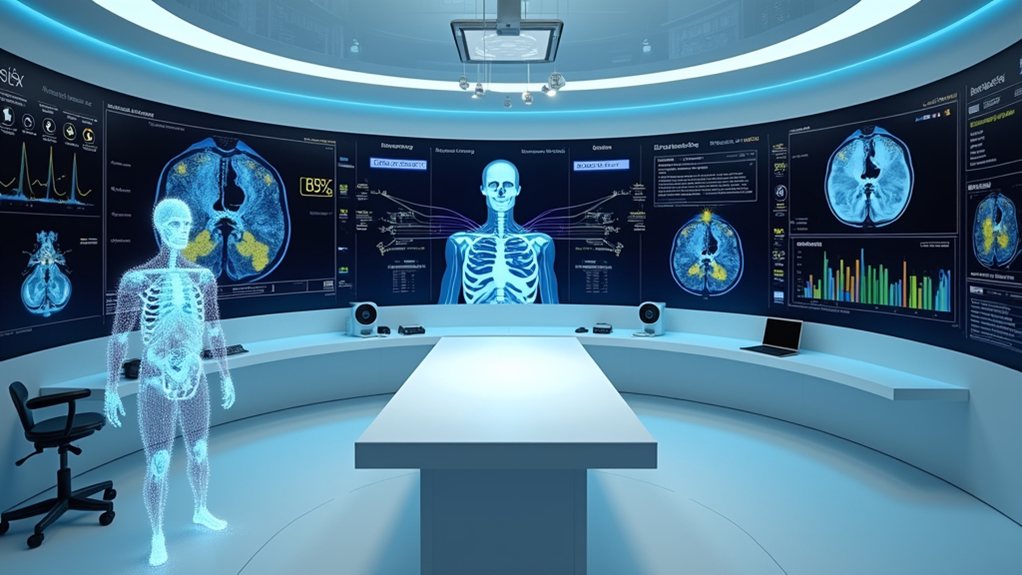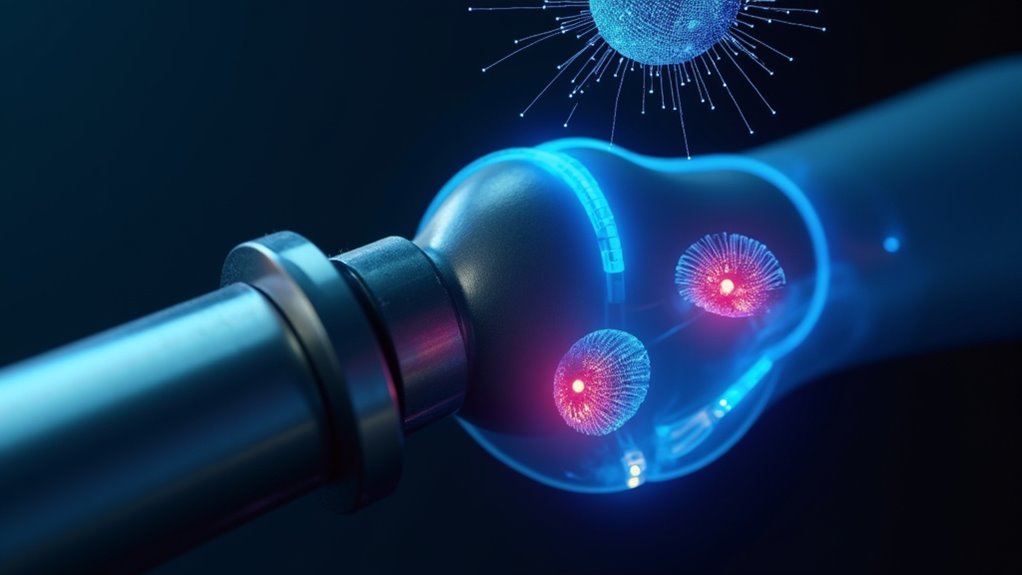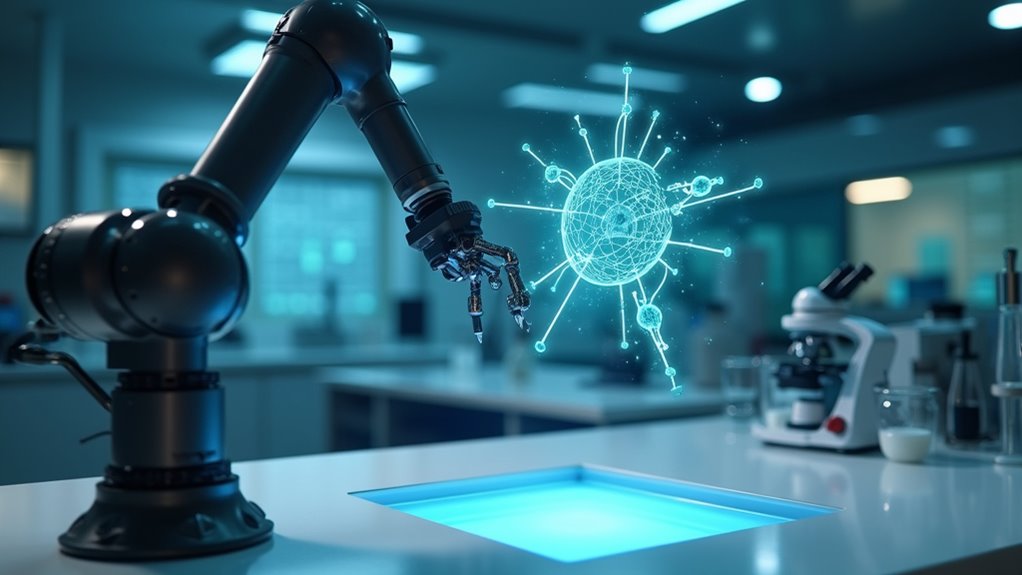AI is revolutionizing fertility treatments by replacing human guesswork with data-driven precision. Advanced algorithms analyze embryo images frame by frame, detecting microscopic details that predict healthier pregnancies. Machine learning systems customize treatment protocols based on genetic profiles, while AI-powered diagnostics offer non-invasive testing through saliva samples and at-home kits. Despite these breakthroughs, IVF success rates remain stubbornly stuck at 30% – but emerging technologies promise to crack this ceiling wide open.
While Hollywood has been busy imagining AI taking over the world, the technology has quietly been making babies—or rather, helping couples make them.
The fertility industry is experiencing a technological revolution that would make even the most skeptical patients take notice. Advanced AI algorithms now analyze embryo images with the precision of a Swiss watchmaker, studying cell division patterns and morphology to predict which embryos are most likely to result in successful pregnancies. Gone are the days when human subjectivity dominated these critical decisions.
The fertility industry’s AI revolution brings Swiss-precision analysis to embryo selection, replacing human subjectivity with data-driven pregnancy predictions.
The numbers don’t lie: data-driven embryo selection is boosting IVF pregnancy rates across the board. Machine learning systems identify the healthiest embryos by processing thousands of microscopic details that human eyes might miss. Time-lapse imaging combined with AI creates a thorough monitoring system that tracks embryonic development frame by frame, like a biological security camera. This approach mirrors AI in radiology where algorithms enhance both speed and precision in analyzing medical imagery.
Perhaps most intriguingly, light-emitting microchip technology now measures embryo energy levels as a viability indicator. Because apparently, even embryos need their own fitness trackers now.
Personalized treatment protocols represent another game-changing advancement. AI analyzes complex datasets from previous cycles to customize treatment strategies for individual patients. Genetic profiling allows doctors to select medications and protocols tailored specifically to each person’s biological makeup, while AI predicts patient responses to fertility drugs with remarkable accuracy. Despite these advances, IVF success rates have remained stagnant at 30% for the past decade, highlighting the need for continued AI development.
The diagnostic landscape has transformed equally dramatically. AI-powered ultrasound analysis enhances follicle and uterine lining evaluation, while saliva-based hormone testing provides reproductive health data without invasive procedures. At-home sperm testing kits use AI to interpret results, making male fertility assessment more accessible than ever. Revolutionary non-invasive methods analyze blastocoel fluid and spent embryo culture media to perform genetic testing without requiring embryo biopsies.
Enhanced gamete selection uses AI algorithms to screen sperm and eggs for ideal characteristics before fertilization. These systems predict the best combinations for higher fertilization rates while detecting subtle morphology and motility features that human technicians might overlook.
Preimplantation genetic testing has received a significant upgrade through AI-supported analysis of embryonic genetic material. These advances improve detection of chromosomal abnormalities while using safer, non-invasive techniques that minimize risk to embryos during screening.
The bottom line? AI-driven improvements are raising IVF success rates while reducing the emotional and financial burden on patients managing this challenging journey.









